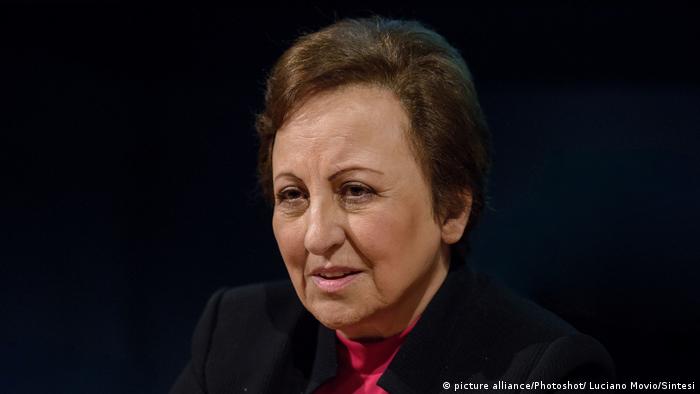Opinion: 'Islamic human rights' is a false path
In international bodies, for instance, Mohammad Javad Larijani, the human rights commissioner of the Iranian government, proudly defends the execution of "divine punishments" — including amputation of the hands of thieves and deaths by stoning.
Some people in Iran today are languishing in prisons just for the simple reason that they are followers of the Baha'i religion. Some other Iranians are facing prison because of accusations that they converted from Islam to Christianity. Iranian women, meanwhile, are punished if they try to assert their rights and discard the hijab.
The Iranian laws used to prosecute and punish these people violate human rights, but they are justified by authorities by invoking the Islamic legal conception.
Read more: Opinion: The supreme leader comes first in Iran
Cairo Declaration of 1990
In 1990, the foreign ministers of the member states of the Organization of Islamic Cooperation, which includes Iran, adopted the Cairo Declaration on Human Rights in Islam. If we view the declaration as the Muslim countries' own way of implementing the Universal Declaration of Human Rights, then there's no problem with that. But if these countries regard their declaration as a counter-proposal to the Universal Declaration of Human Rights, then they have taken a wrong turn.
Atheist states' reservations just as false
Even officially atheist countries like China, with its communist system, do not accept the universal validity of human rights. In their view, human rights are founded in capitalist systems and their values, and are not compatible with socialist ones. But the argument is still wrong.
Freedom of expression, for instance, does not contradict socialism, and communism does not mean arbitrary rule. It is dictators, however, who understand and implement communism in this way.
Read more: Opinion: No sign of political reform in China since 'Charter 08'
Thus the faith in god as well as the belief that god doesn't exist have become pretexts for the oppression of people.
Many systematic violations of human rights in recent years have been justified by the fight against terrorism. Some states — allegedly for reasons of national security — have restricted personal freedoms and extended their own powers. Here we must work to replace "national security" with "personal security."
UN's flaws
The United Nations and other international organizations have so far focused their attention on civil and political rights, and have not paid enough attention to social and economic rights, which is one of the reasons for the widespread poverty worldwide.
For this reason, human rights are not sufficiently respected in countries across the global South. This has contributed to undemocratic governments there disregarding their human rights obligations.
The inefficient functioning of the United Nations, particularly the Human Rights Council, has also prevented progress in the field of human rights over the past 60 years.
When the UN Charter was drafted, there was too much optimism and too much certainty that states — not all, but most — would have the support of their citizens and, as voters' representatives, would investigate and eliminate cases of human rights violations.
 'The
inefficient functioning of the United Nations, particularly the Human
Rights Council, has also prevented progress in the field of human rights
over the past 60 years'
'The
inefficient functioning of the United Nations, particularly the Human
Rights Council, has also prevented progress in the field of human rights
over the past 60 years'Justice is also part of globalization
The main reason for the lack of sustained progress on human rights, however, is impunity for those who violate them. The jurisdiction of the International Criminal Court is limited to its member countries. New ways of punishing offenders must therefore be sought.
In cases where local courts are not able to provide justice, the countries committed to human rights must come to the aid of the victims of human rights violations and give them the opportunity to file complaints against their abusers.
In other words, it is time to talk about a globalization of justice so that people who violate human rights can be brought to justice even in other countries. Globalization will only be considered a success if we succeed in globalizing the judiciary.
Shirin Ebadi is an Iranian lawyer, a former judge and a human rights activist. For her contributions to democracy and human rights, she was awarded the Nobel Peace Prize in 2003.







































No comments:
Post a Comment